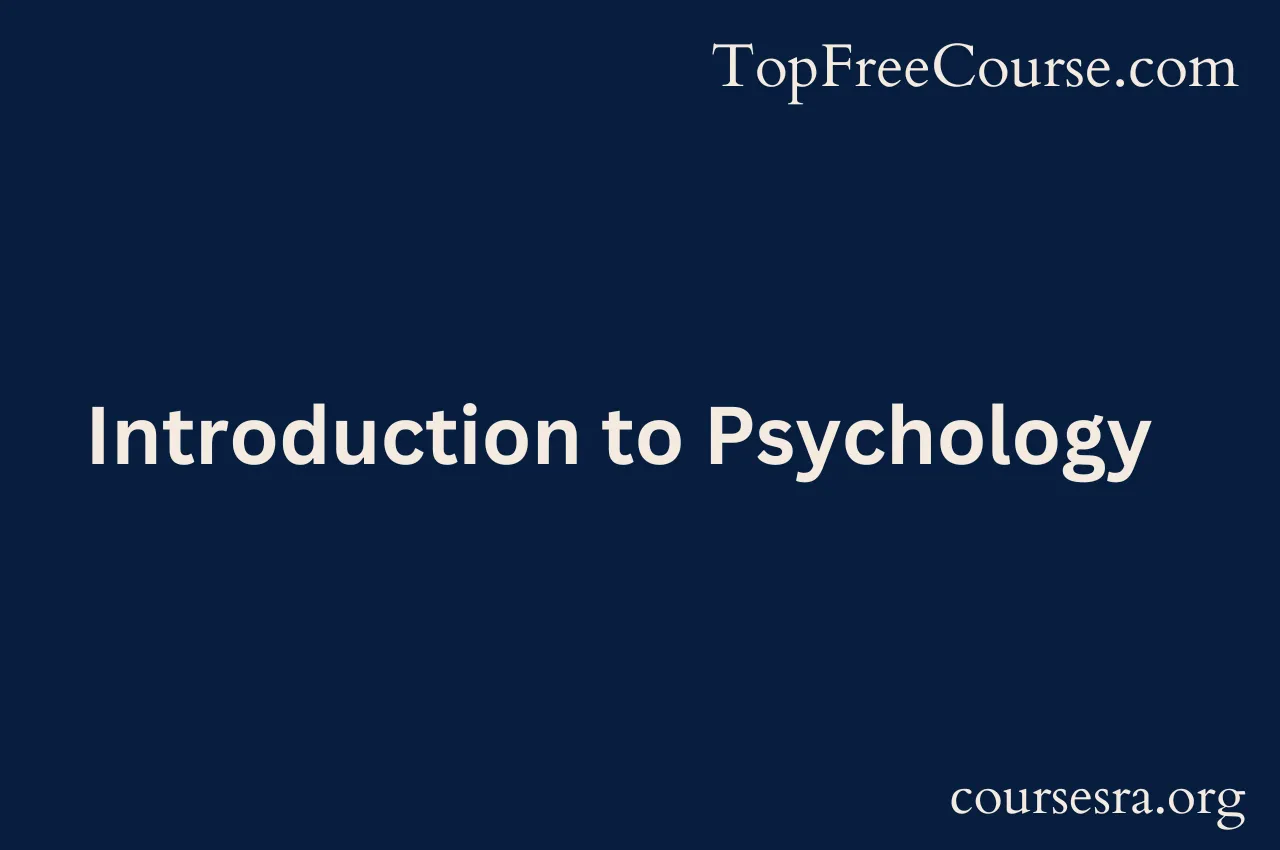What Will You Learn?
Embark on a fascinating exploration of the human mind in this free course, delving into the scientific study of thought and behavior. Uncover the mysteries behind our fears, dreams, happiness, and societal nuances, while gaining insights into perception, communication, learning, memory, decision-making, persuasion, emotions, and social behavior. From the development of these mental aspects in children to their variations across individuals, the course unravels the intricacies of the mind's wiring and examines how it can be affected by illness and injury.
About This Course
Provider: Coursera
Format: Online
Duration: 14 hours to complete [Approx]
Target Audience: Beginners
Learning Objectives: By the end of this free course, you will gain a comprehensive understanding of the scientific principles underlying human thought and behavior, exploring topics such as perception, communication, learning, memory, decision-making, emotions, and social behavior.
Course Prerequisites: NA
Assessment and Certification: NA
Instructor: Yale University
Key Topics: Critical Thinking, Problem Solving, Analytical Thinking, Abstract Thinking, Rreasoning
Topic Covered:
- - Welcome
- - The astonishing hypothesis
- - Dualism
- - Neurons
- - Parts of the brain
- - Our two brains
- - A bit of humility
- - Sigmund Freud
- - The psychodynamic approach
- - Stages of development
- - Defense mechanisms
- - Scientific assessment of Freud
- - Taking Freud seriously
- - B.F. Skinner
- - Habituation
- - Classical conditioning
- - Instrumental conditioning
- - Scientific assessment of Skinner
- - Big questions about development
- - Piaget
- - Piaget's Developmental Stage Theory
- - Scientific evaluation of Piaget
- - Methods for studying infants
- - How are children different from adults?
- - Explanations for development
- - What is language?
- - Basic facts about language
- - Phonology
- - Morphology
- - Problems of perception
- - Perception of brightness
- - Perception of objects
- - Perception of depth
- - Attention
- - Important memory distinctions
- - Memory storage
- - Learning
- - Remembering
- - Failures of memory
- - False memories
- - Evolution of emotion
- - Why evolution matters
- - Facial expressions
- - Fear
- - Kinship
- - Attachment
- - Prisoner's dilemma
- - Irrationality and culture
- - Social animals
- - Self
- - Attribution
- - Liking
- - The psychology of groups
- - Social categories
- - How are we different?
- - Personality
- - Intelligence
- - Behavioral genetics
- - Major discoveries about genes and environment
- - Parenting
- - Mental illness
- - Schizophrenia
- - Mood disorders
- - Anxiety disorders
- - Dissassociation disorders
- - Personality disorders
- - Positive psycholog
- - What is happiness?
- - Happiness set point
- - Happiness is relative
- - Judgments about past events are skewed
- - Humility and Optimism

0 Comments